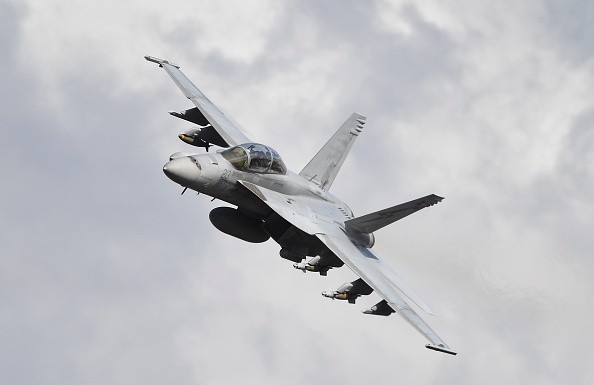
China sends warplanes after the United States expressed its intentions to improve relations with Taiwan under the Biden administration.
Taipei expressed its gratitude to the United States for its commitment to "rock-solid support" against China's coercion.
READ: Trump's Impeachment Trial Defense to be Lead by South Carolina Lawyer Butch Bowers
On Saturday, the State Department said it "notes with concern the pattern of ongoing (China's) attempts to intimidate its neighbors, including Taiwan."
"We sincerely thank U.S. State Department for its rock-solid support of democratic of Taiwan in the face of Beijing's ongoing coercion. Based on shared values and of the interests, we are committed to our partnership with the United States in furthering peace and stability in the Indo Pacific," the Ministry of Foreign Affairs of Taiwan said via tweet amid Beijing's growing aggressiveness.
Washington's statement would continue to strengthen relations with Taiwan and ensure its security against Chinese attacks while encouraging a peaceful resolution of issues between the parties.
The U.S. noted with concern the trend of ongoing Chinese attempts to bully its neighbors, hours after several Chinese warplanes violated Taiwan's air defense identification zone, and urged Beijing to cease its political, diplomatic, and economic pressure against Taipei.
The U.S. State Department said that the Washington would stand with friends and allies in the Indo-Pacific region to promote our mutual prosperity, stability, and values.
ALSO READ: Trump Offers Washington DC Hotel To National Guards Kicked Out of the US Capitol
On the same day, China sends warplanes just days after Joe Biden assumed the United States' presidency. Focus Taiwan announced that Taiwan's Defense Ministry said that Taiwan's Air Force scrambled fighter jets as 13 Chinese warplanes invaded Taiwan's Southwest Air Defense Identification Zone (ADIZ).
Biden's administration has shown no indication of reducing China's leverage on why china sends warplanes, even though it is seen as favoring a return to more civil dialogue. The island's de-facto ambassador to Washington, Hsiao Bi-khim, was a guest at Biden's inauguration, in another sign of support for Taiwan.
And in a final dig why China sends warplanes, the outgoing Trump administration's U.N. It is time for the world to condemn China's attempts to exclude and divide Taiwan, the ambassador tweeted, drawing strong criticism from Beijing.
During a civil war in 1949, Taiwan and China split, and China says it is determined to put the island under its rule by force if possible. In 1979, the U.S. transferred diplomatic recognition from Taipei to Beijing. Still, it is constitutionally required to ensure that Taiwan can protect itself, and Washington enjoys strong bipartisan support for the self-governing democratic island.
READ MORE: Lucky Michigan Person Wins $1 Billion Mega Millions Jackpot, 2nd-Largest Total in History
In 1979, the U.S. transferred diplomatic recognition from Taipei to Beijing. Still, it is constitutionally required to ensure that Taiwan can protect itself, and Washington enjoys strong bipartisan support for the self-governing democratic island.
As economic and political incentives bear little fruit, China's increased challenges carry small fruit. China sends warplanes and deploys almost regular fighter jets and reconnaissance aircraft to the island of 24 million inhabitants, 160 km (100 miles) off China's southeast coast across the Taiwan Strait.
Beijing asserts absolute sovereignty over Taiwan, a democracy of nearly 24 million citizens situated off mainland China's southeastern coast. For more than seven decades, the two sides have been ruled separately. On the other side, Taipei has balanced Chinese aggression by growing strategic relations with democracies, including the United States, which Beijing has repeatedly opposed.
Chinese aircraft briefly crossed the Taiwan Strait median line last year during visits by senior U.S. officials to Taipei, which usually acts as an unofficial buffer.
The U.S. commitment to Taiwan is rock-solid and helps to preserve peace and stability in the Taiwan Strait and the region, the statement said.
© 2026 HNGN, All rights reserved. Do not reproduce without permission.








